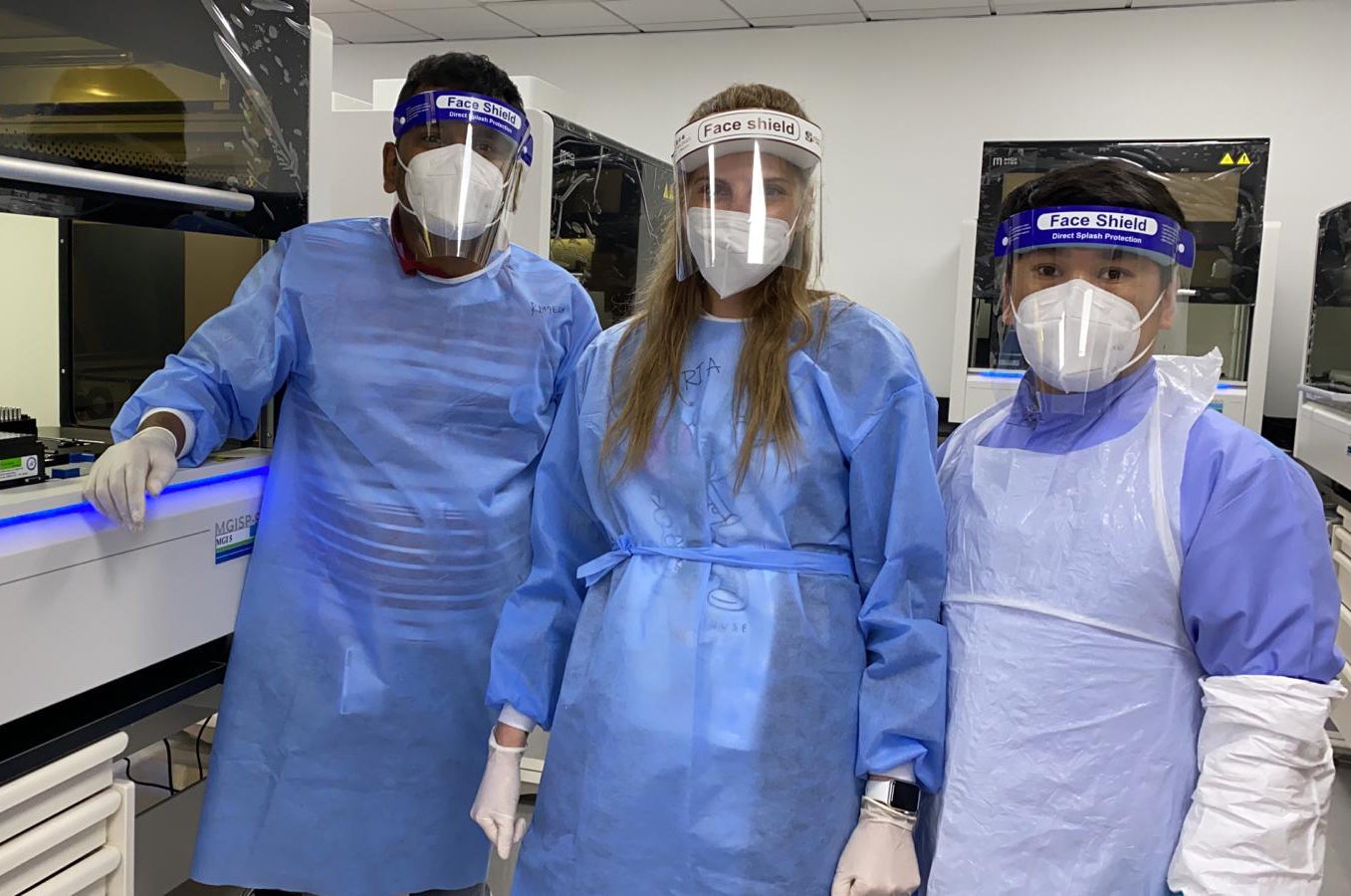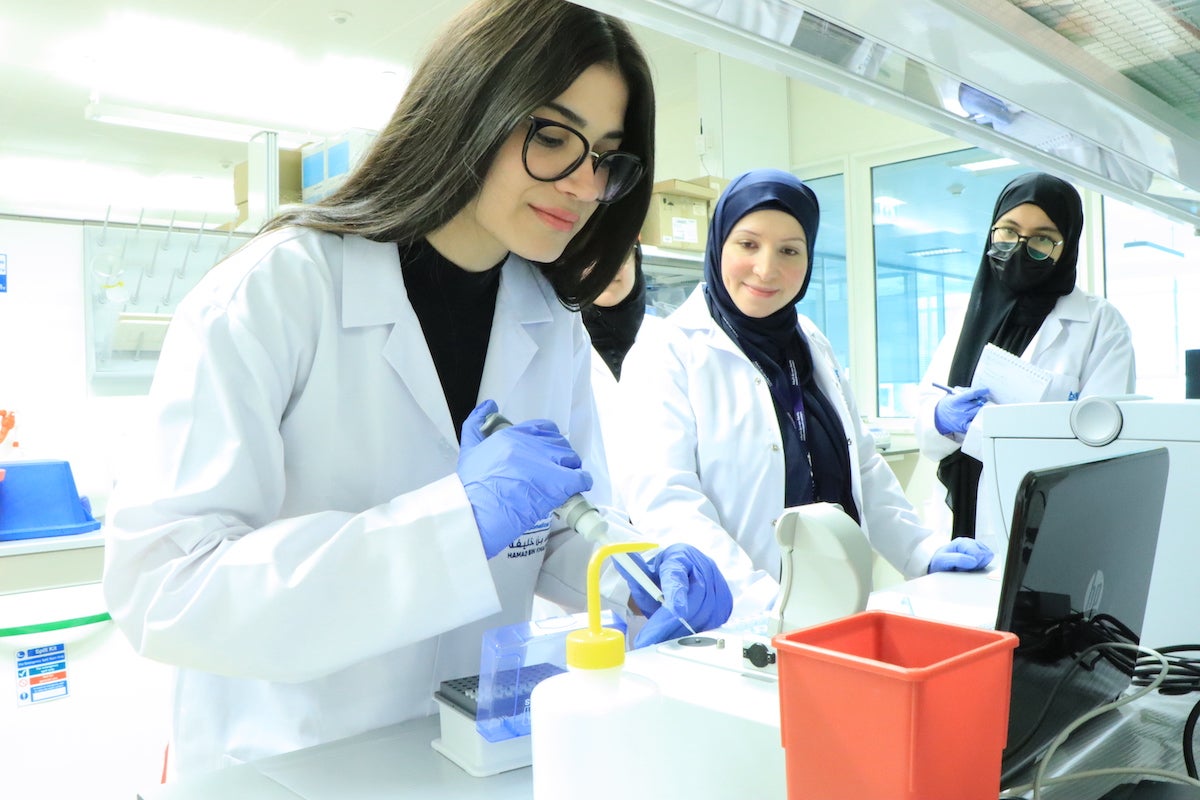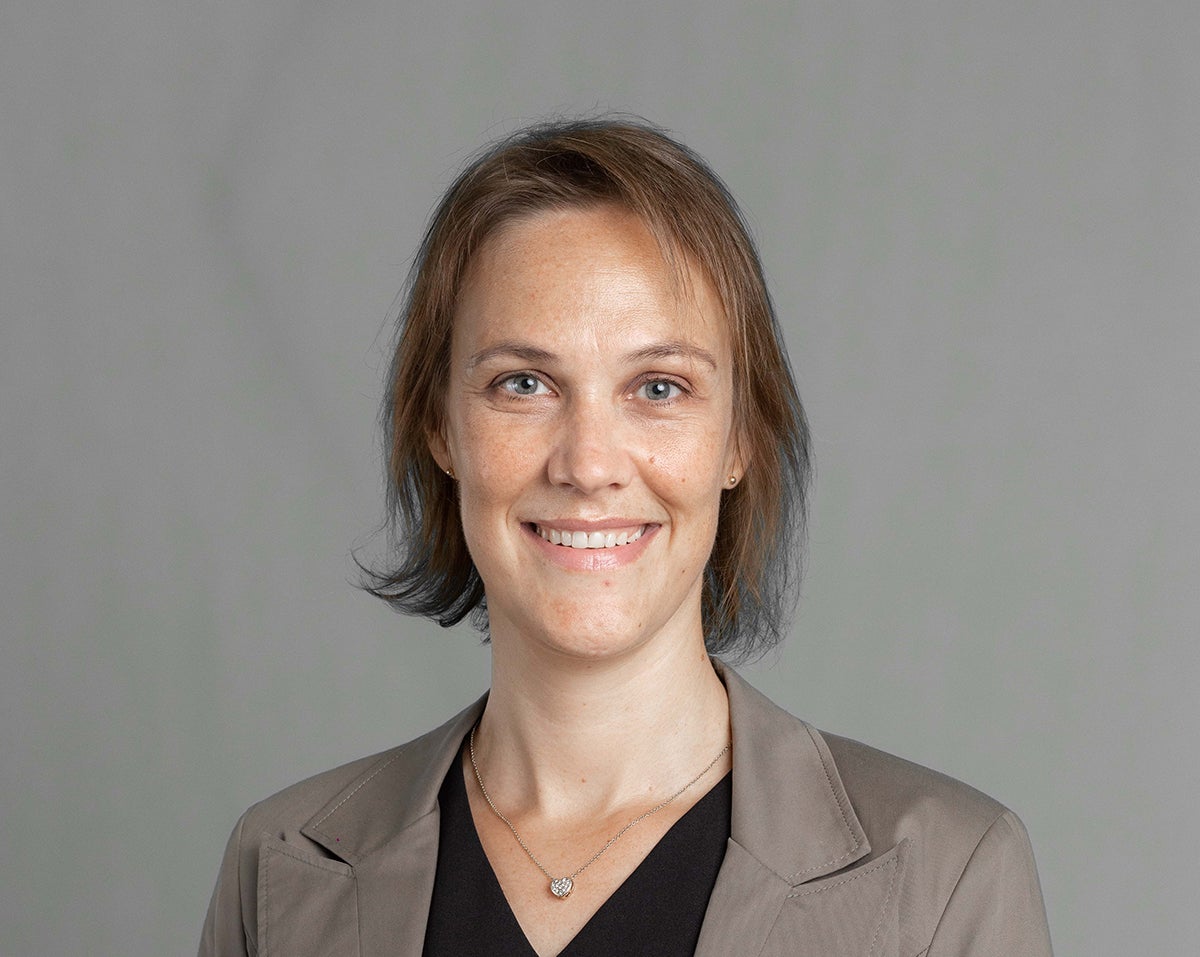Employing the research institute’s capacities proves instrumental in pandemic fight

Qatar Biomedical Research Institute (QBRI) at Hamad Bin Khalifa University (HBKU) is providing its full support to Hamad Medical Corporation’s (HMC) COVID-19 efforts through a volunteer program, which was carried out in the summer months of 2020.
In June, QBRI employed all of its efforts to provide high-caliber volunteers to HMC. The research institute also placed the capabilities of its research staff at HMC’s disposal, as they provided technical assistance within the corporation’s laboratories where needed.
In doing so, QBRI conducted an information session in collaboration with HMC to encourage the volunteers to play an active role within the larger picture. One of the many aims of the information session was to explain the safety standards followed by HMC and ensure the wellbeing of QBRI’s participants.
Dr. Afif Ben Mahmoud, Senior Research Associate, QBRI, said: "I volunteered because I always felt that assisting others is part of what makes us human. It was fulfilling to extend a helping hand to others and contribute through knowledge-sharing; it is only my hope that my efforts have contributed to this noble endeavor."
Dr. Ilaria Poggiolini, Postdoctoral Researcher, QBRI, said: "Volunteering has given me a sense of purpose during this challenging time and has allowed me to give back to the country that is currently hosting me.”
Aside from the implementation of a successful volunteer program, QBRI jointly hosted a webinar which featured guest speaker Dr. Peter Coyle, Senior Consultant, Head of Virology, HMC. The talk focused on the Diagnostic Stewardship for COVID-19 and the viral kinetics of SARS-CoV-2 -- the RNA virus responsible for the pandemic.
Dr. Fares Al-Ejeh, Senior Scientist, QBRI, said “It was a great honor and responsibility to orchestrate the volunteer program and other aspects of the relationship between QBRI and the Department of Laboratory Medicine and Pathology at HMC. All of our appreciation goes to QBRI’s volunteers who committed to the mission and worked around the clock to support HMC and increase its testing capacity”.
QBRI has also shared laboratory equipment with HMC, while researchers with specific knowledge about molecular biology have volunteered to provide technical assistance for analyzing COVID-19 samples. HMC has examined nearly 600,000 people since the outbreak of the pandemic. Over 100,000 people have tested positive for the virus in Qatar with less than 200 fatalities reported across the country. Worldwide, over 23 million people have been confirmed as having the virus and there have been more than 800,000 fatalities.
“We are proud to support HMC,” said Dr. Omar El-Agnaf, Executive Director, QBRI “As one of Qatar’s leading healthcare providers, it is engaged in tremendously important work and our cooperation once again highlights our responsibility to the local community. As a rule, QBRI generally deals with non-communicable and non-infectious diseases; however, once our support was needed we offered all our expertise and relevant equipment to assist the invaluable work being carried out by the corporation to fight this devastating virus. It is a team effort in every way possible.”
For more information on the work of Qatar Biomedical Research Institute, please visit qbri.hbku.edu.qa.
Related News










